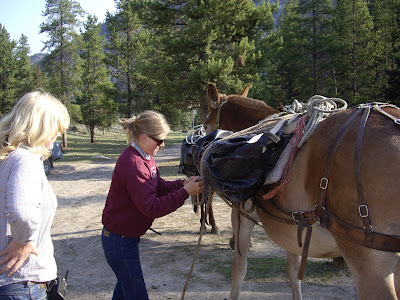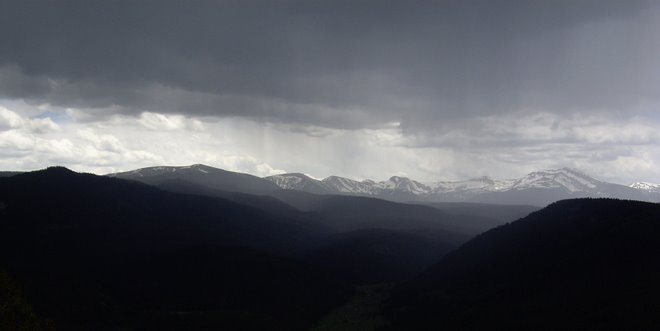It is probably one of the last things that people don't believe in, if they have looked at the facts. So I’ll assume that you do believe. Unfortunately, most of us don’t really know how to help. But I am sure that I don’t want to visit my family in Europe, once they have been plunged into another ice age.
And so help I must. Here is what I found out. An Inconvenient Truth is an excellent source of facts concerning climate change. Watch the movie. Read the website.
The US Environmental Protectin Agency also has a climate change website, full of useful information.
Stopglobalwarming.org has useful tips on how to calculate your energy efficiency and such.
If you don’t have time to navigate the web pages, I have cut and pasted the “take action” tips from the An Inconvenient Truth website.
TAKE ACTION
In the home
Replace a regular incandescent light bulb with a compact fluorescent light bulb (cfl)
CFLs use 60% less energy than a regular bulb. This simple switch will save about 300 pounds of carbon dioxide a year. If every family in the U.S. made the switch, we’d reduce carbon dioxide by more than 90 billion pounds! You can purchase CFLs online from the Energy Federation.
Move your thermostat down 2° in winter and up 2° in summer
Almost half of the energy we use in our homes goes to heating and cooling. You could save about 2,000 pounds of carbon dioxide a year with this simple adjustment. The American Council for an Energy Efficient Economy has more tips for saving energy on heating and cooling.
Clean or replace filters on your furnace and air conditioner
Cleaning a dirty air filter can save 350 pounds of carbon dioxide a year.
Install a programmable thermostat
Programmable thermostats will automatically lower the heat or air conditioning at night and raise them again in the morning. They can save you $100 a year on your energy bill.
Choose energy efficient appliances when making new purchases
Look for the Energy Star label on new appliances to choose the most efficient models. If each household in the U.S. replaced its existing appliances with the most efficient models available, we’d eliminate 175 million tons of carbon dioxide emissions every year!
Wrap your water heater in an insulation blanket
You’ll save 1,000 pounds of carbon dioxide a year with this simple action. You can save another 550 pounds per year by setting the thermostat no higher than 120 degrees Fahrenheit.
Use less hot water
It takes a lot of energy to heat water. You can use less hot water by installing a low flow showerhead (350 pounds of carbon dioxide saved per year) and washing your clothes in cold or warm water (500 pounds saved per year) instead of hot.
Use a clothesline instead of a dryer whenever possible
You can save 700 pounds of carbon dioxide when you air dry your clothes for 6 months out of the year.
Turn off electronic devices you’re not using
Simply turning off your television, DVD player, stereo, and computer when you’re not using them will save you thousands of pounds of carbon dioxide a year.
Unplug electronics from the wall when you’re not using them
Even when turned off, things like hairdryers, cell phone chargers and televisions use energy. In fact, the energy used to keep display clocks lit and memory chips working accounts for 5 percent of total domestic energy consumption and spews 18 million tons of carbon into the atmosphere every year!
Only run your dishwasher when there’s a full load and use the energy-saving setting
You can save 100 pounds of carbon dioxide per year.
Insulate and weatherize your home
Properly insulating your walls and ceilings can save 25% of your home heating bill and 2,000 pounds of carbon dioxide a year. Caulking and weather-stripping can save another 1,700 pounds per year. The Consumer Federation of America has more information on how to better insulate your home.
Be sure you’re recycling at home
You can save 2,400 pounds of carbon dioxide a year by recycling half of the waste your household generates. Earth 911 can help you find recycling resources in your area.
Buy recycled paper products
It takes less 70 to 90% less energy to make recycled paper and it prevents the loss of forests worldwide.
Plant a tree
A single tree will absorb one ton of carbon dioxide over its lifetime. Shade provided by trees can also reduce your air conditioning bill by 10 to 15%. The Arbor Day Foundation has information on planting and provides trees you can plant with membership.
Get a home energy audit
Many utilities offer free home energy audits to find where your home is poorly insulated or energy inefficient. You can save up to 30% off your energy bill and 1,000 pounds of carbon dioxide a year. Energy Star can help you find an energy specialist.
Switch to green power
In many areas, you can switch to energy generated by clean, renewable sources such as wind and solar. Ecotricity
is a good place to start to figure out what’s available in your area.
Buy locally grown and produced foods
The average meal in the United States travels 1,200 miles from the farm to your plate. Buying locally will save fuel and keep money in your community.
Buy fresh foods instead of frozen
Frozen food uses 10 times more energy to produce.
Seek out and support local farmers markets
They reduce the amount of energy required to grow and transport the food to you by one fifth. You can find a farmer’s market in your area at the USDA website.
Buy organic foods as much as possible
Organic soils capture and store carbon dioxide at much higher levels than soils from conventional farms. If we grew all of our corn and soybeans organically, we’d remove 580 billion pounds of carbon dioxide from the atmosphere!
Avoid heavily packaged products
You can save 1,200 pounds of carbon dioxide if you cut down your garbage by 10%.
Eat less meat
Methane is the second most significant greenhouse gas and cows are one of the greatest methane emitters. Their grassy diet and multiple stomachs cause them to produce methane, which they exhale with every breath. (Hah!! Eat wild game.)
On the Move
Reduce the number of miles you drive by walking, biking, carpooling or taking mass transit wherever possible
Avoiding just 10 miles of driving every week would eliminate about 500 pounds of carbon dioxide emissions a year! Click here to find transit options in your area.
Start a carpool with your coworkers or classmates
Sharing a ride with someone just 2 days a week will reduce your carbon dioxide emissions by 1,590 pounds a year. eRideShare.com runs a free national service connecting commuters and travelers.
Keep your car tuned up
Regular maintenance helps improve fuel efficiency and reduces emissions. When just 1% of car owners properly maintain their cars, nearly a billion pounds of carbon dioxide are kept out of the atmosphere.
Check your tires weekly to make sure they’re properly inflated
Proper inflation can improve gas mileage by more than 3%. Since every gallon of gasoline saved keeps 20 pounds of carbon dioxide out of the atmosphere, every increase in fuel efficiency makes a difference!
When it is time for a new car, choose a more fuel efficient vehicle
You can save 3,000 pounds of carbon dioxide every year if your new car gets only 3 miles per gallon more than your current one. You can get up to 60 miles per gallon with a hybrid! You can find information on fuel efficiency here and here.
Try car sharing
Need a car but don’t want to buy one? Community car sharing organizations provide access to a car and your membership fee covers gas, maintenance and insurance. Many companies – such as Flexcar -- offer low emission or hybrid cars too!
Try telecommuting from home
Telecommuting can help you drastically reduce the number of miles you drive every week. For more information, check out the Telework Coalition.
Fly less
Air travel produces large amounts of emissions so reducing how much you fly by even one or two trips a year can reduce your emissions significantly. You can also offset your air travel by investing in renewable energy projects.















